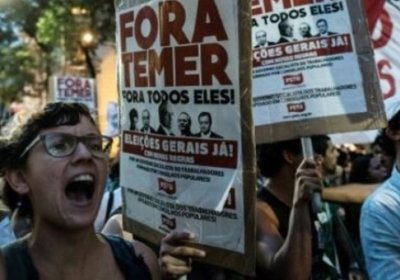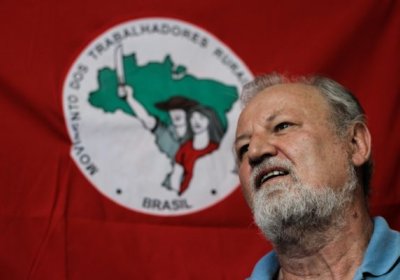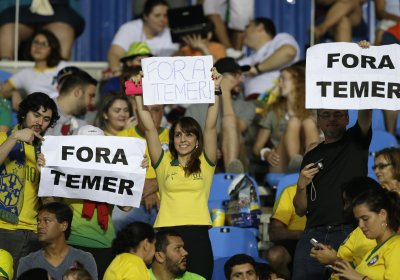Riot police cracked down and fired tear gas on thousands of protesters in central Rio de Janeiro on October 17 as marches flooded the streets to reject unelected President Michel Temer’s proposed 20-year freeze on public spending, which critics say will spell disaster in the cash-strapped country.
Brazil
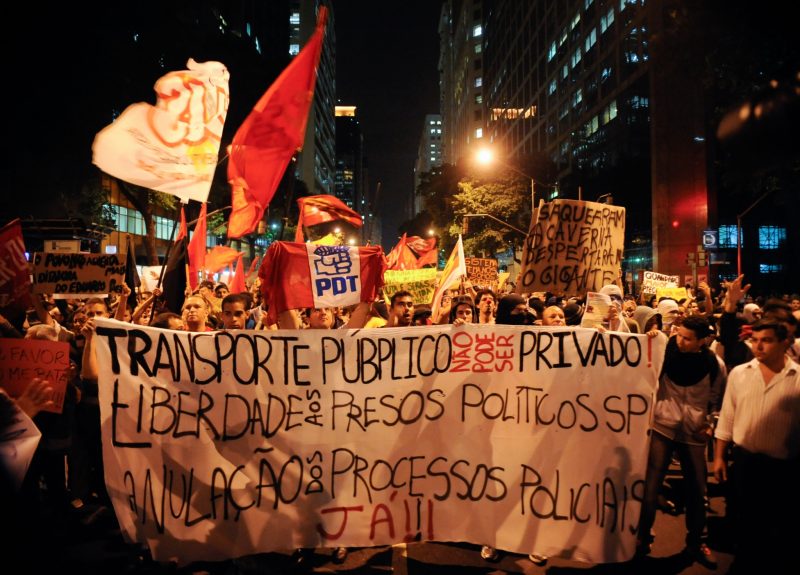 Protests triggered by public transport fare increases in 2013.
Protests triggered by public transport fare increases in 2013.
Less than two years after Workers’ Party (PT) candidate Dilma Rousseff was re-elected as Brazil’s president, she was removed from office by the Brazilian senate.
The Brazilian right, which controls the senate, carried out a constitutional coup. In the process, they revealed their contempt for democracy.
Oppose the coups in Latin America! Solidarity with the people of Venezuela and Brazil!
We, the undersigned, condemn the destabilisation plan underway in Venezuela against President Nicolas Maduro. We send our solidarity to President Maduro and the Venezuelan people who are resisting attempts by right-wing opposition forces to oust a democratically-elected government by violent means in violation of the democratic vote of the people and the country’s constitution.
MST leader says Brazilians must rise up
Joao Pedro Stedile is a founder and leader of Brazil's Landless Workers' Movement (MST). One of Latin America’s largest social movements, the MST fights for land reform and the rights of poor farmers.
Below, Stedile calls for resistance to the “institutional coup” in Brazil, in which elected Workers’ Party (PT) president Dilma Rousseff was removed by the Senate and Michel Temer installed on August 31.
* * *
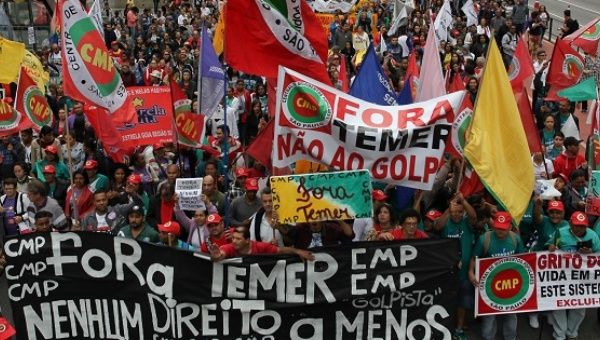
São Paulo, September 7.
Brazil’s unelected president Michel Temer was greeted with shouts of “Temer Out” on his first public appearance in Brazil since being installed in office on August 31.
Tens of thousands of demonstrators took to the streets on September 7 in more than a dozen cities for a national day of action dubbed the “Cry of the Excluded”.
Brazil's de facto president Michel Temer was sworn in on August 31, after the country's Senate voted to impeach suspended President Dilma Rousseff.
“I am absolutely convinced that history will talk of the Rio de Janeiro before the Games and the much better Rio de Janeiro after the Olympic Games,” said Thomas Bach, president of the International Olympic Committee.
Coca-Cola, McDonald's, Visa and the rest of the corporate sponsors of the August 5–21 Olympic Games in Rio de Janeiro won't be paying any taxes on the money they earn due to a tax exemption law that is set to cost Brazil hundreds of millions of dollars.
The US’s first Black swimmer to win a gold medal, Simone Manuel, dedicated her win to ending police brutality on August 11. Manuel tied with Penny Oleksiak from Canada at 52:70 to win gold in the 100 metre freestyle race at the Rio games that day.
Jorge Knijnik is a researcher at the Institute for Culture and Society at the University of Western Sydney, and specialist in sport and social justice issues. He spoke to Lalitha Chelliah from the Solidarity Breakfast Show on Melbourne community radio station 3CR on August 6 about the many social issues swirling around the 2016 Rio Olympics. Below is an edited and abridged transcript.
As Brazil’s media focuses its attention on the Rio Olympics, new revelations continue to shine a light on the glaring contradictions in the unelected government's efforts to impeach suspended President Dilma Rousseff for allegations of fraud.
- Previous page
- Page 10
- Next page
